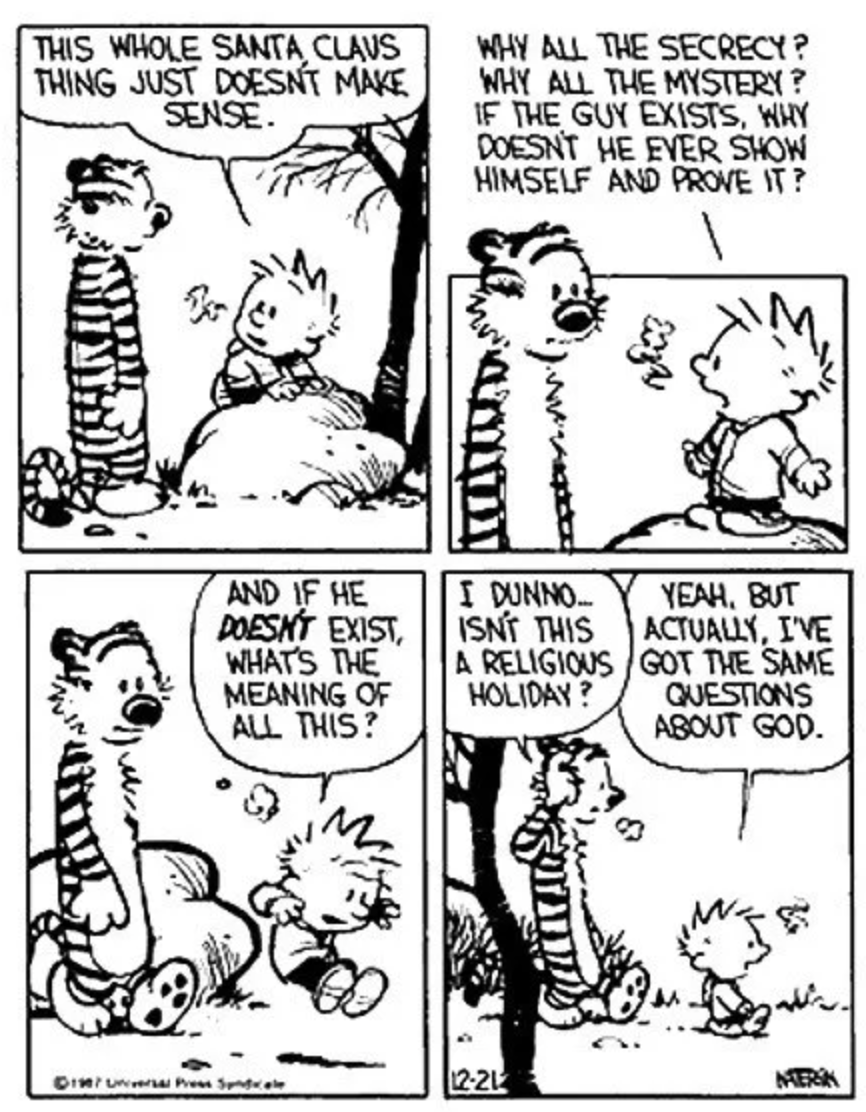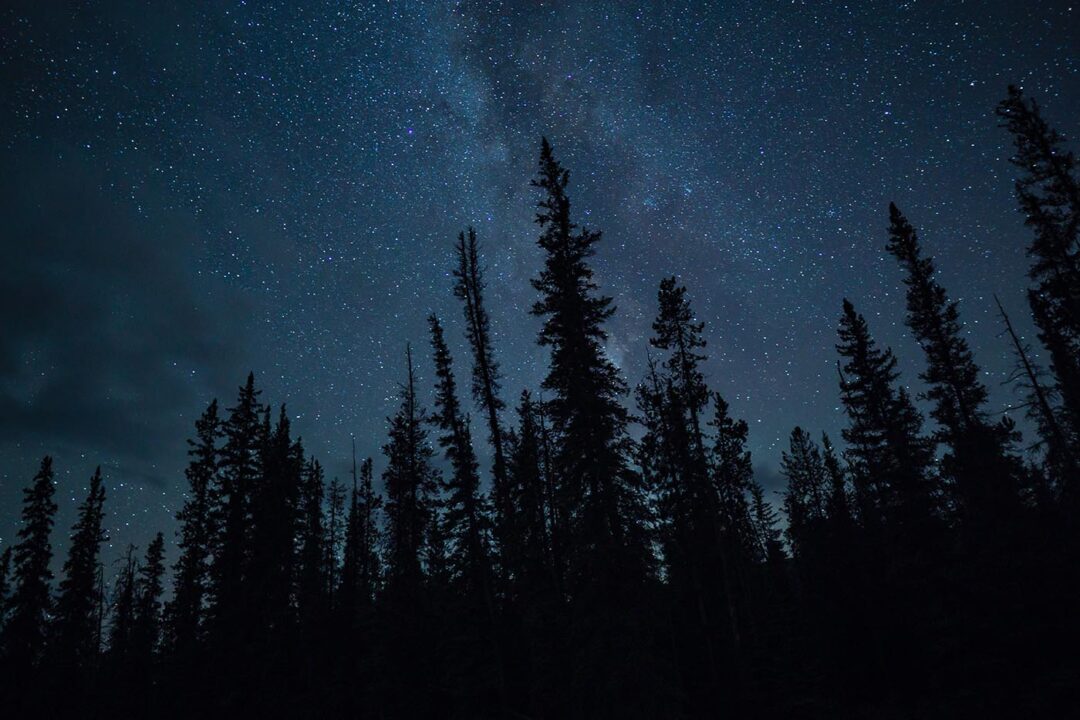It’s said that we don’t seek God but rather, when it’s our time, God seeks us.
I can’t speak for the experiences of others, but that certainly holds true here.
Truth be told I’m still routinely astonished to learn that almost no one thinks about God the way I do. (Mind you, when I speak of God I don’t have any preconceived idea in mind other than it’s most definitely not some ‘Santa Claus in the sky.’)
From the time my older sister was dispatched to teach us little ones the classic prayer, “Now I lay me down to sleep,” God – or at least unconscious, un-requested thoughts about God – has remained with me. Probably before that, too, but I was pretty young so who knows?
Anyway, I recall asking my sister if we could append anything to the fixed portion of the prayer and imagine her answer was something along the lines of, “Sure, knock yourself out.”
And so I did, gradually turning those little canned prayers into nightly, long-form conversations with God. As the years went by – and particularly after our family was blown to smithereens and I spent long stretches of time in abject loneliness – I turned to God. I was Calvin and God was my imaginary Hobbes.

Meaning that I never felt as if I was getting anything out of those conversations. Mostly I just needed someone or something to talk to. God, in my fertile little imagination, was simply there and for me that was enough.
To be sure there were (and still are) long, dark stretches where I was frustrated and tired with the seeming one-way nature of the relationship. Other times, when things got especially bad, I cursed God or declared It dead and of no further use to me.
Inevitably, however, I always returned. In fact, I could not have stayed away if I’d wanted to. And I suppose that’s why I’m writing: when you’re called, you’re called, and there’s really nothing you can do about it. Or put another way, it’s not your fault if God doesn’t resonate with you nor to your credit if It does.
Jesus and most other mystics reminded us that God is available to us all, but narrow is the path and few can be found there.
Why? Why do most of us ignore the idea of a God (or at most lob the occasional thought or prayer at the topic) and a small minority become addicted to the pursuit?
It would be easy to dismiss spiritual aspirants as weak-minded or of a miserable caste, but it’s certainly not the case. Mystics and sages have hailed from all walks of life. Similarly, I can attest that even as my own life dramatically improved on just about every front imaginable, my longing for God only intensified.
God Is
What the quest for God, the spiritual journey, the search for Truth, etc., has shown me, is that God really is working behind the scenes, constantly, relentlessly, lovingly, but not in the way the mind is going to understand.
It is the mind – the unexamined mind – that makes a mess of things.
If you’ve ever watched one of those survival shows, you’ll see that the contestants almost always have some all-encompassing tool that cuts woods, starts fires, etc. That’s how I see the mind. It is the only tool we’ve ever had to explain this world and our role in it. Without the mind I could not even exist.
Left unexamined, however, the mind assumes ITS interpretation of things is the ONLY interpretation of things. Which means humility is difficult to come by. And if you’ve ever wondered what, more than anything else, is missing from the train wreck of human life, isn’t it humility?
I suspect it is precisely because of the mind’s mistaken monopoly on understanding that so many of us give up on God early in the game (what we call atheists). God isn’t playing by the house rules, isn’t answering our calls, isn’t raining down miracles when they’re needed. Ergo, God isn’t real, because if It was real It would accommodate and respond to our endless needs.
Others of us get waylaid by mind-made interpretations of mystical teachings and forge them into organized religions. The likes of Jesus or the Buddha do their best to do the impossible and explain Truth, and these foggy minds of ours come up with interpretations of those teachings, jot them down and label it ‘scripture.’
Both types of mind – the atheist and the religious – live out their lives in darkness, convinced they’ve got it ‘right’ yet also wondering, in the case of the former, why the human world remains such a stubborn mess, and in the case of the latter, why God so rarely answers prayers or makes the world a better place.
The Birth of Humility
God is not a plaything of the mind. It is not something to be believed in or put to our own use. The teachers I trust have described God as an experience. It awakens in us to the degree we get out of the way and allow it to shine forth. Conversely, it shrinks back into the darkness every time we take the wheel and assume control of and responsibility for this life. (God is the quiet one in the room who never gets a chance to speak because nobody is capable of actually listening.)
I’m a slow – very slow – learner. After a lifetime of searching for God the tiniest spark now resonates within. I say tiny because it seems clear that the magnitude of what awaits us all isn’t just inconceivable to the mind – if fully beheld it would shatter that mind into an infinity of pieces.
What is experienced here is subtle, almost imperceptible but also profound. And it has brought with it a modicum of peace unknown across the vast majority of ‘my life.’ If I have any request of God at all, it would be to grant me more time to continue with this journey. Nothing else matters. At least to me.
This life has been a glorious, messy, maddening gift. There has been excruciating pain – at times more than I thought I could bare. But in retrospect it all feels so loving and critical to this journey. Without it would I – could I – have remained on the journey?
Most journeys are sustained by food, water, and the necessities of life. But the spiritual journey seems, instead, to be fed by suffering from – or perhaps frustration with – this life. I don’t believe that God wants us to suffer anymore than a parent wants her child to suffer. But we also know what happens to the spoiled child.
It is only through suffering that something stirs within, something that drives us to our knees and says to whatever might be listening, “Please help me. I can’t do this on my own. I’ve tried and I’ve failed. Please show me another way.”
This is where true humility is is born. And again, it seems that today, more than ever, humility is what our world most needs.



